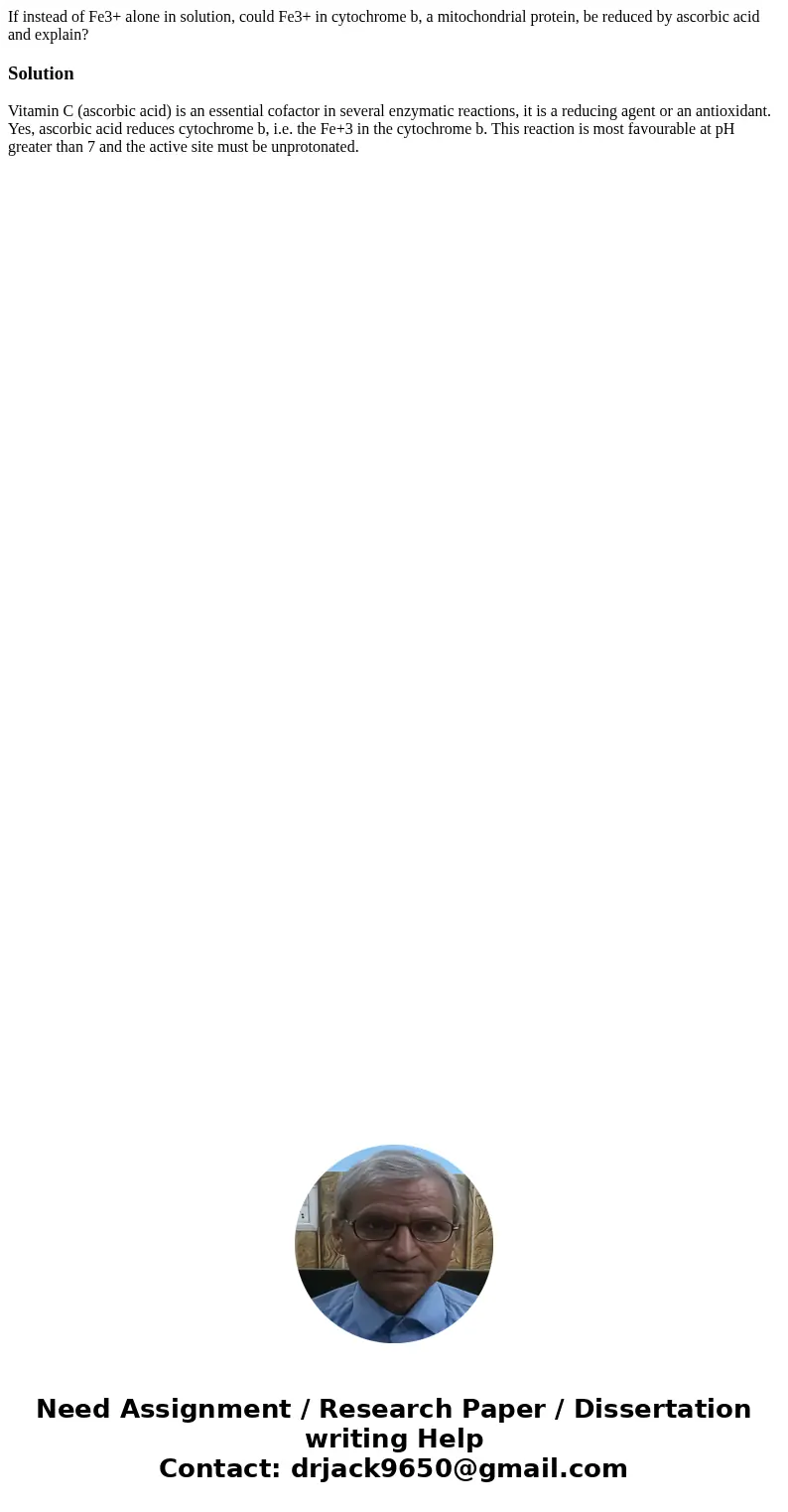If instead of Fe3 alone in solution could Fe3 in cytochrome
If instead of Fe3+ alone in solution, could Fe3+ in cytochrome b, a mitochondrial protein, be reduced by ascorbic acid and explain?
Solution
Vitamin C (ascorbic acid) is an essential cofactor in several enzymatic reactions, it is a reducing agent or an antioxidant. Yes, ascorbic acid reduces cytochrome b, i.e. the Fe+3 in the cytochrome b. This reaction is most favourable at pH greater than 7 and the active site must be unprotonated.

 Homework Sourse
Homework Sourse